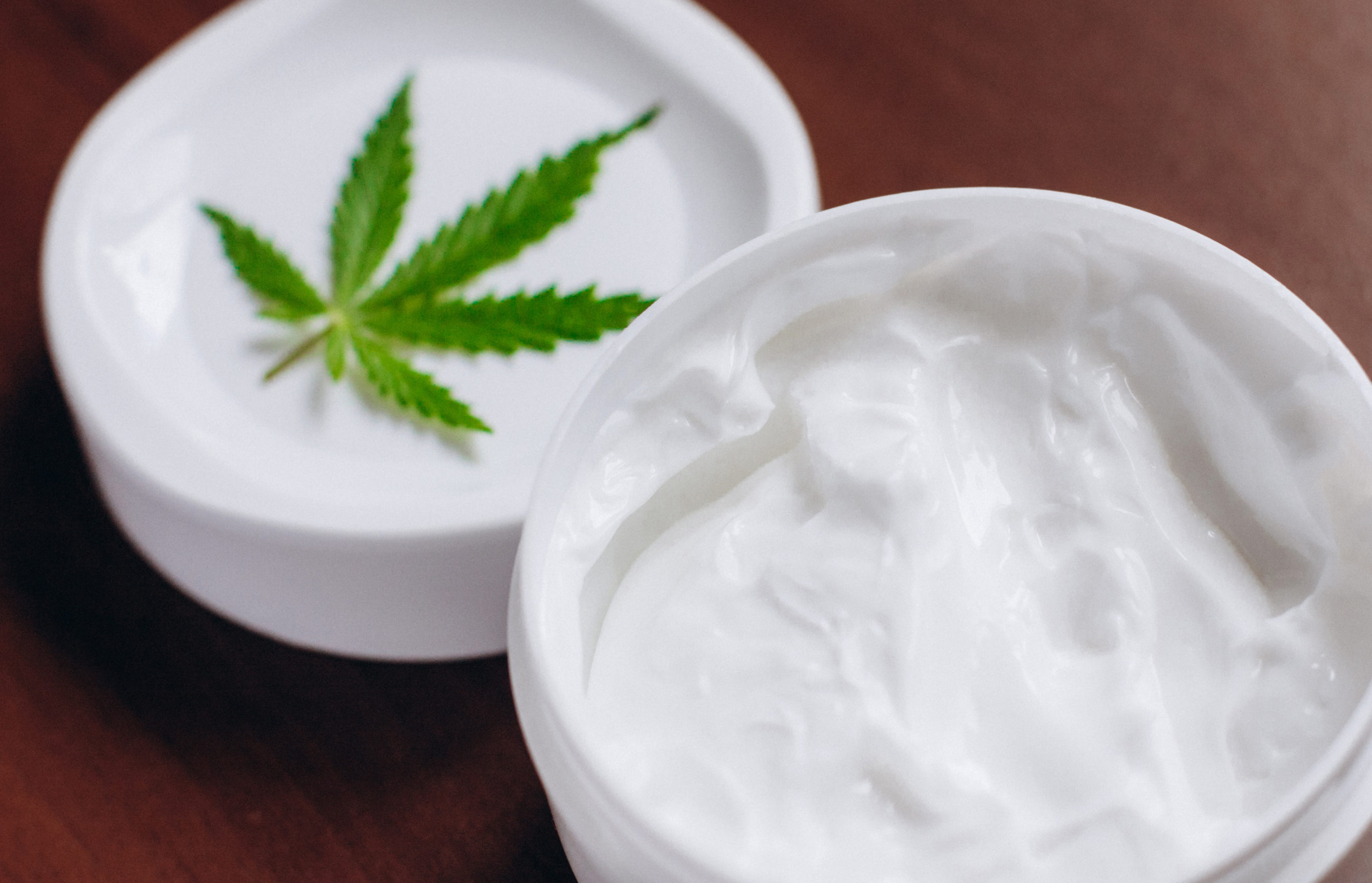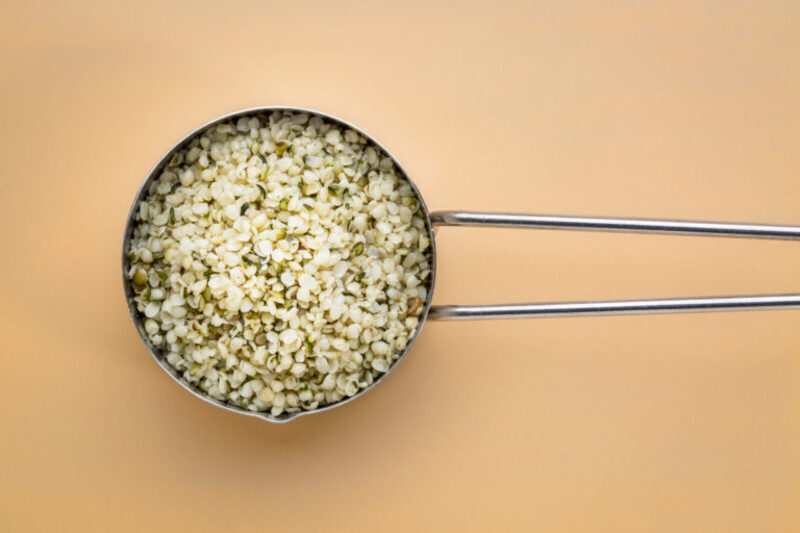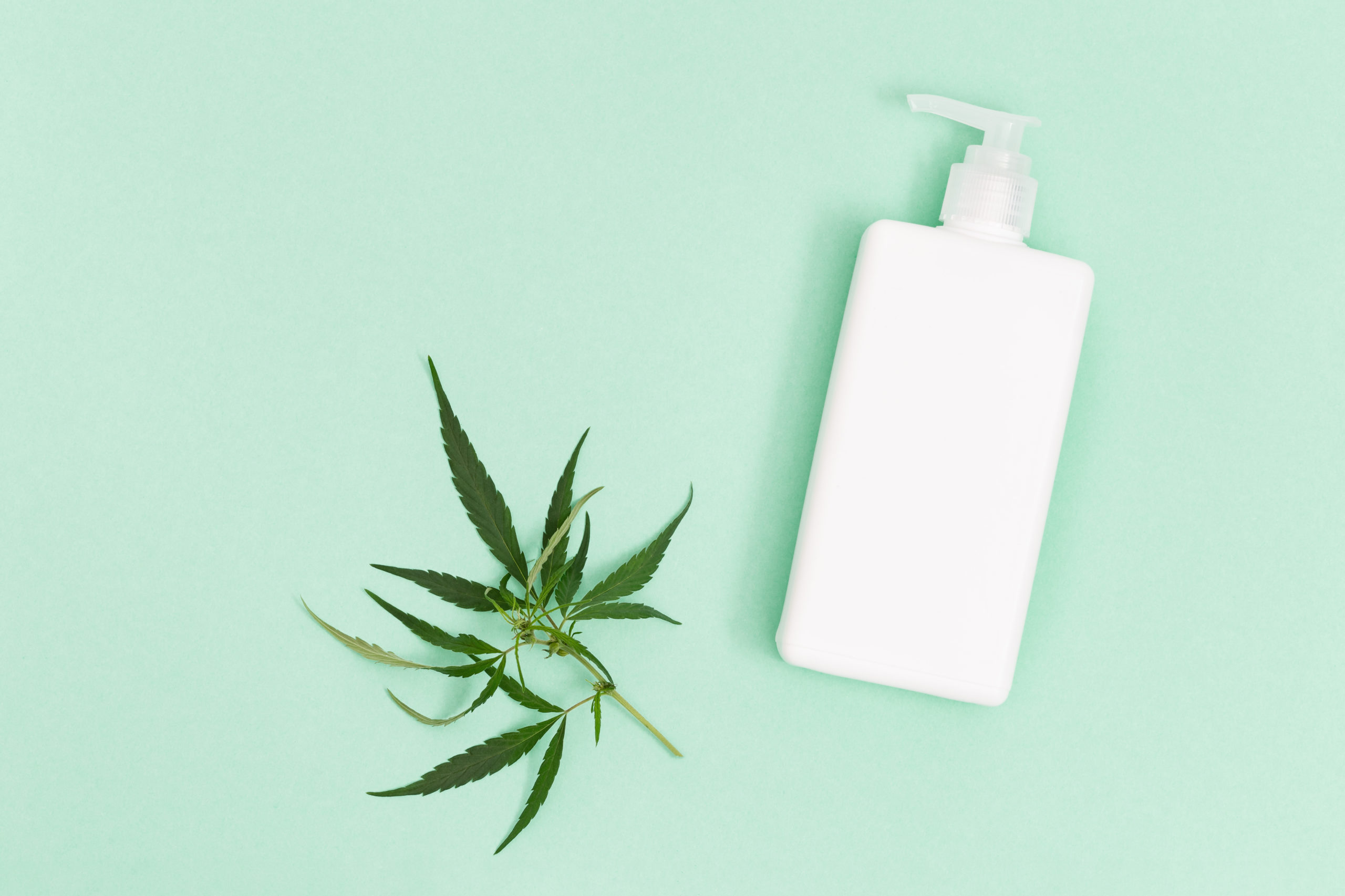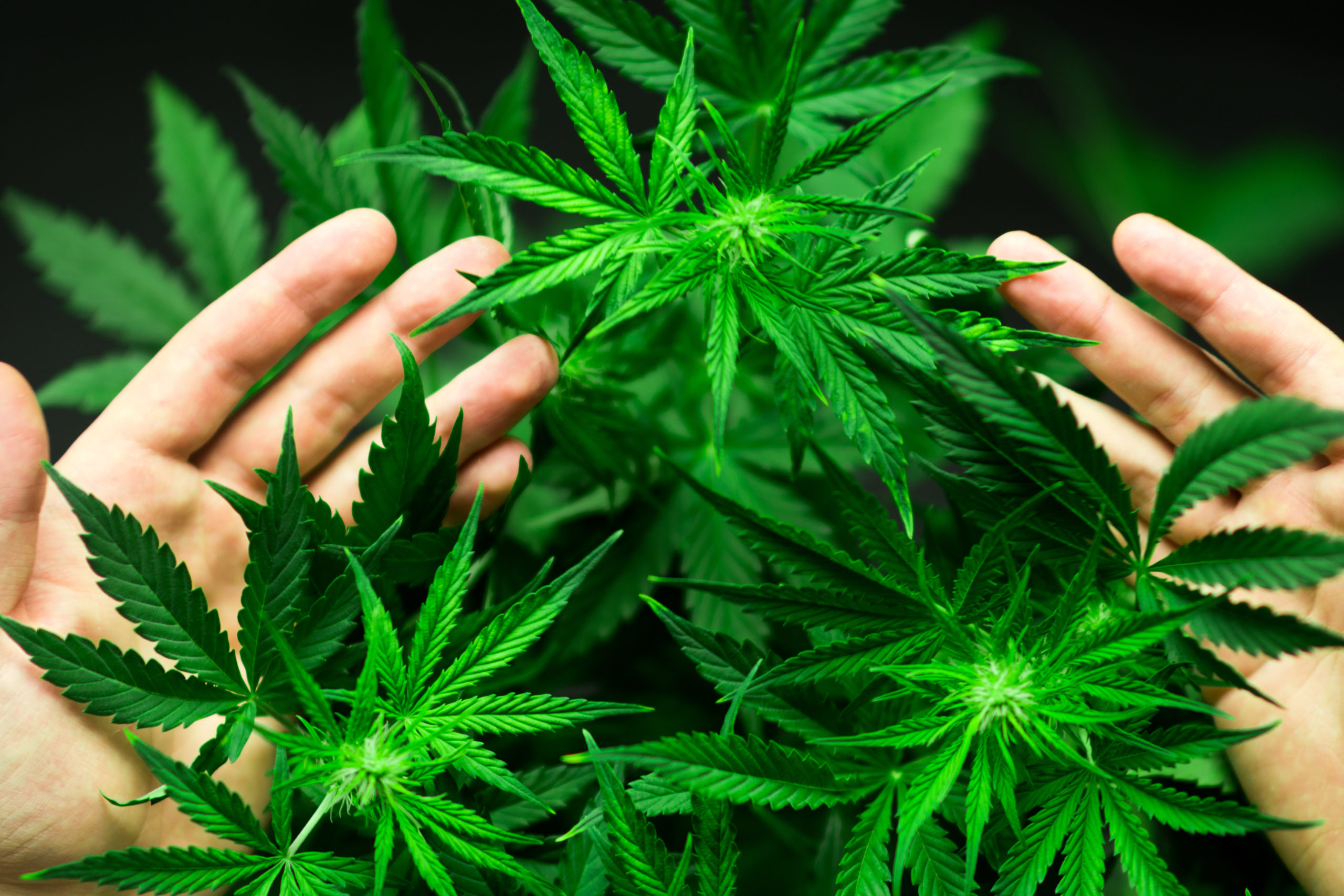-
- Market Research
- |
- CBD Near Me
- |
- Giveaways
- |
- Newsletter
- |
- Contact
- |
- Advertise
- |
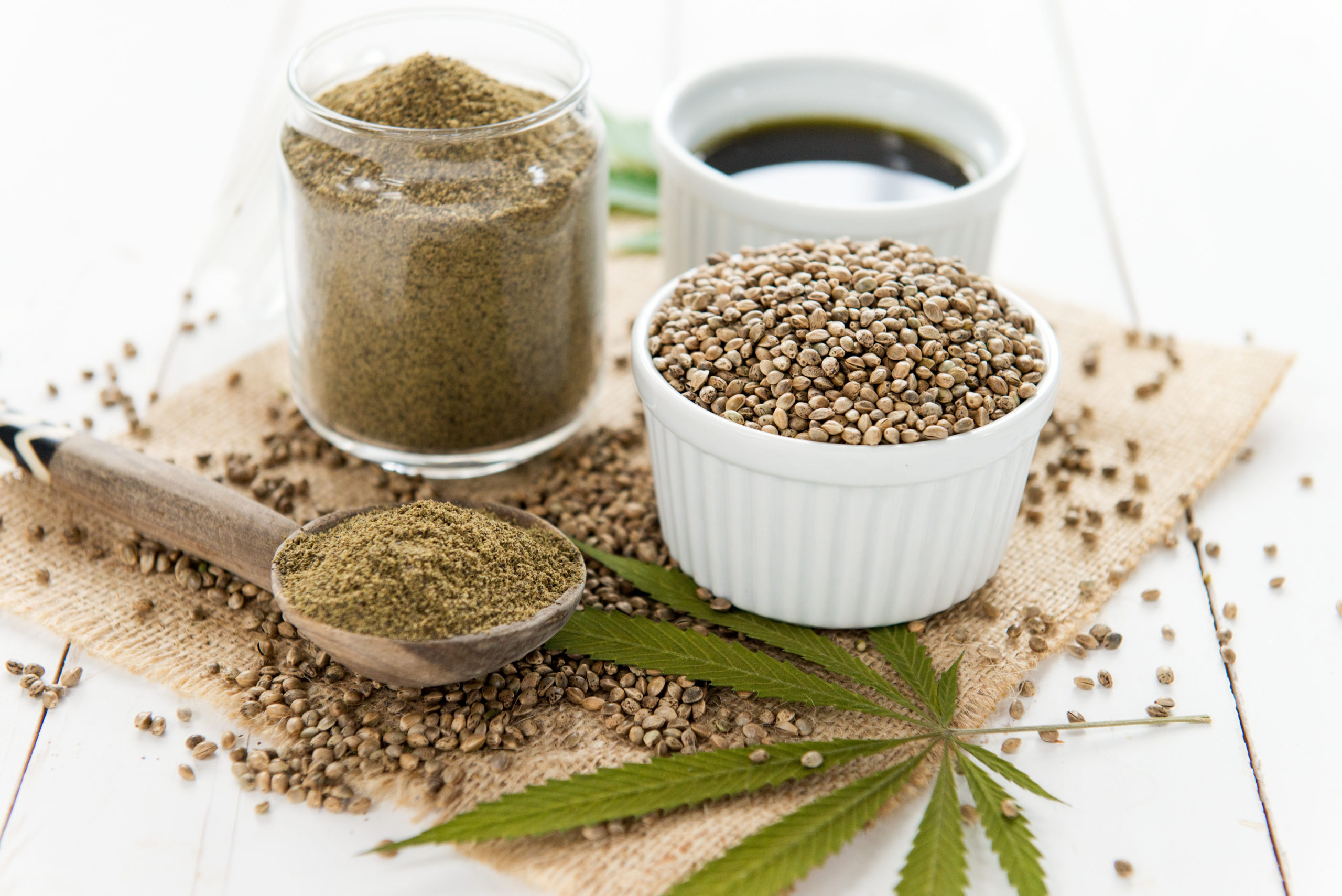
We’ve all been there, you’ve decided to begin taking your health seriously, and one of the first changes you make is supplementing protein into your diet. This sounds simple enough until you realize there are numerous types of protein and countless brands claiming that their product is the best. Considering the nutritional value of hemp, it should come as no surprise that it is an excellent protein source. Let’s take a look at the facts about hemp protein.
Hemp Protein Vs. Whey Protein
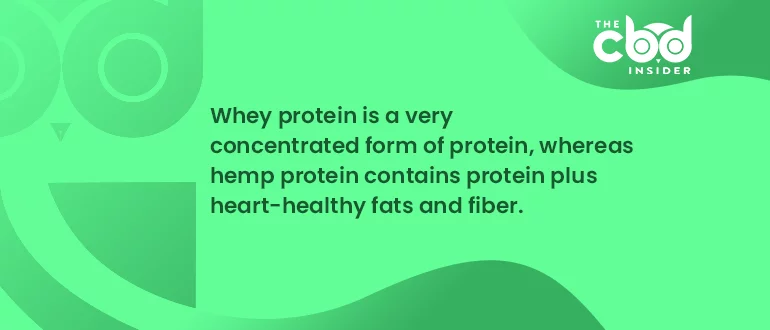
Whey protein, which is a cheese production byproduct, is easily the most recognized protein supplement. This is largely due to its competitive pricing and ease of production. However, hemp protein, a relatively new challenger, is chipping away at the market share of whey protein. Let’s explore some of the advantages that hemp protein brings to the table.
Plant-Based
Whey protein is dairy-based. This can present problems for people who are lactose-intolerant or sensitive to dairy products. The lactose in whey protein can result in gastrointestinal discomfort for some users. While generally considered easily digestible, consuming whey protein in large amounts is almost a sure bet for an upset stomach.
On the other hand, plant-based hemp protein is much more forgiving on our digestive systems. Additionally, hemp protein is generally considered more digestible than whey. Hemp protein powder, which typically comes from processing hemp seeds into a powdered form, is considered vegan and vegetarian friendly, as opposed to whey, which is only vegetarian approved.
Additives
No matter how convincing the salesperson at your local health food store is, whey protein production is not a 100% natural process. That’s because processors must use a compound called hexane during whey protein production. Hexane is required to extract most (but not all) of the lactose from the whey powder.
In contrast, hemp protein production is typically 100% natural. There are no byproducts that processors must remove from hemp seeds used in protein supplements. This further contributes to hemp protein’s superior digestion profile when compared to other protein sources.
Digestion & Absorption
Many supporters of animal-based proteins often argue that the body digests animal-based proteins like whey or red meat more efficiently than hemp or other plant-based proteins. While this is accurate for most plant-based proteins, hemp is the unique outlier.
In a study published in the Journal of Agricultural Food Chemistry, researchers found that protein in hemp seed meal, like that used in most hemp protein powders, maintains a digestibility rate of 90.8-97.5%. [1]
Protein isn’t the only component of hemp that our bodies efficiently use. Hemp is also a natural source of 20 amino acids, including all nine essential amino acids.
Sustainability
Many people don’t realize that animal agriculture is the leading cause of deforestation, as well as water and air pollution and loss of biodiversity. [3] This is relevant because whey protein is an animal-based product, thus contributing to these environmentally impactful events.
On the other hand, the cultivation of hemp that goes into protein (and countless other products) maintains a significantly lower environmental impact. In an era of environmental awareness, opting for sustainability should certainly be a factor to consider when comparing hemp protein to other options.
Hemp Protein Benefits
We’ve compared hemp protein to whey protein, but what about the unique benefits of hemp protein? It should come as no surprise that this list is rapidly growing as additional research is released.
Fiber
A study published in the American Journal of Lifestyle Medicine reports that only about 5% of the population consumes the recommended daily intake of fiber. This should alarm most people, given the evidence that fiber consumption plays a role in the prevention of certain cancers, diabetes, and improves gastrointestinal health.
The Institute of Medicine (IOM) recommends a daily fiber intake between 19-38 grams, depending on gender and age. Fortunately, users of hemp protein have the added benefit of it being a rich source of fiber.
On average, hemp protein provides around 20% of the IOM’s recommended daily fiber intake. Based on findings published in Euphytica, the International Journal of Plant Breeding, 80% of the fiber found in whole hemp seeds is considered soluble, and 20% remains insoluble. Both types of fiber are essential to our health.
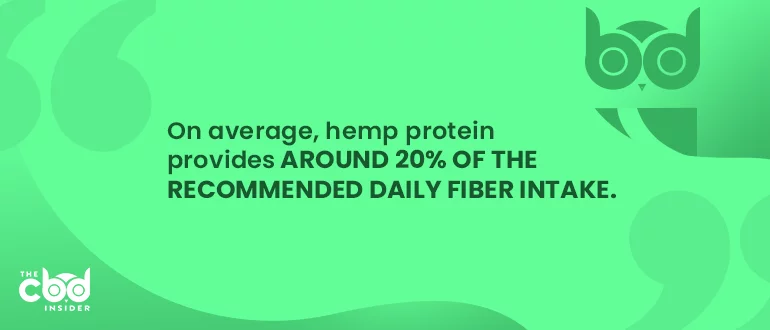
Healthy Fats
According to the Journal of Food and Function, hemp protein retains roughly 10% of its original fat content after processing. However, these are mostly unsaturated, which are considered healthy fats.
Natural Minerals, Antioxidants, and Amino Acids
Hemp protein not only contains 20 natural amino acids, including all nine essential aminos, but it is also an excellent source for minerals and antioxidants.
This 2017 study by the Natural Resources Institute found that hemp seeds used in hemp protein powders pack quite the punch in terms of mineral content. Hemp seeds were found to be an excellent source of copper, zinc, manganese, iron, calcium, magnesium, and phosphorous.
Additionally, findings published in the Journal of Agricultural Food Chemistry reported the presence of lignanamides in hemp seeds. This compound is reported to maintain a robust antioxidant profile.
Will I get High from Hemp Protein?
Simply put, no. Although hemp seeds used to produce hemp protein powder comes from the Cannabis Sativa plant, there is typically a non-detectable amount of THC in the final product. Additionally, if a minuscule amount of THC were present in the hemp seeds used to make the powder, it would likely be destroyed during the processing of the hemp seeds.
A study published in the Journal of Analytical Toxicology found that individuals consuming 3-4 times the average recommended daily dosage of hemp seed protein showed no THC activity in drug tests.
How Much Hemp Protein Should I Take?
According to the British Journal of Nutrition, people over the age of 19 years old should intake roughly 0.4 grams of protein per pound of bodyweight on a daily basis. Of course, this is a rough estimate, and other variables like activity level, gender, and other health conditions may mean that this number needs to be adjusted.
To put this value in perspective, an average, healthy 160-pound adult would target around 64 grams of protein daily. An average, healthy 190-pound adult would need closer to 76 grams of protein each day.
Again, these recommendations are simply a starting point, and each person may require adjustments based on their profile. We recommend speaking with your primary healthcare provider or a registered dietician to develop a balanced diet plan, including daily protein intake goals.
Potential Side Effects of Hemp Protein

Typically considered beneficial and safe for most people, there are some potential gastrointestinal side effects of hemp protein, especially for first-time users.
We recommend starting slowly to allow your body time to adjust to the high fiber content. Some users report temporary gastrointestinal discomfort when first trying hemp protein. As your body becomes accustomed to the additional fiber, these effects will likely subside.
Conclusion
Hemp protein powder can be an excellent substitute for traditional animal-based protein powders. Its naturally occurring amino acids, healthy omega fats, fiber, and antioxidants are all reasons why you may want to begin incorporating hemp protein into your diet.
If you would like to learn more about hemp’s versatile nature, we recommend signing up for our free newsletter. This is an excellent source for the latest hemp and CBD news, as well as product reviews.


